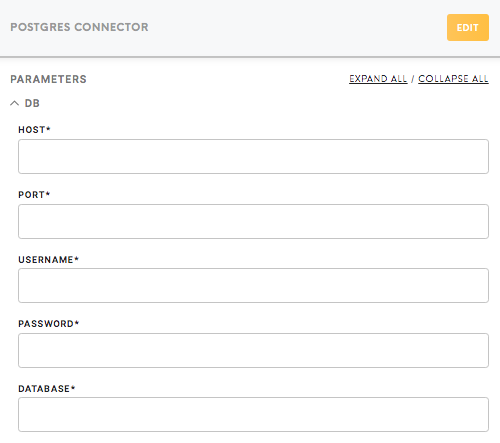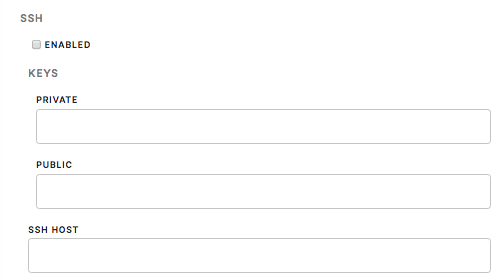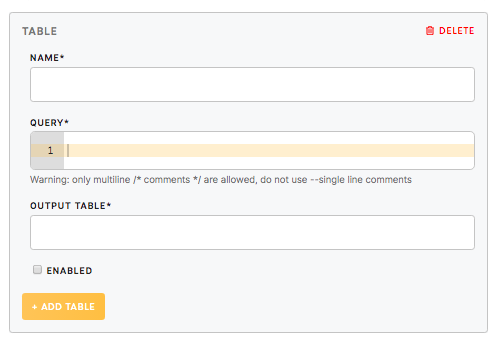Connector Postgres
PostgreSQL often referred to as Postgres, is an object-relational database management system.
Postgres uses and extends the SQL language combined with many features that safely store and scales the most complicated data workloads.
The native data types that are supported include:
| Primitives | |
| Structured | |
| Document | |
| Geometry | |
| Customizations |
Learn more: about Postgres from PostgreSQL tutorials.
The Postgres connector is used to connect and load data from the PostgreSQL database.
Requirements
Credentials of the database you would like to connect to:
- Host
- Port
- Name of the database
- Username
- Password
- SSH key details (optional, described in more detail below)
If you wish to connect to a database outside of the Meiro environment, you may need a front-end tool like PgAdmin4, Postico, DBeaver or any other front-end (GUI) tool available online. To learn more about these tools, please refer to their respective documentation online. Connecting via a GUI tool is not mandatory, but it may be useful if you want to access the database outside the Meiro environment.
Postgres components work only with CSV tables. Other data formats need to be converted to CSV format by processors.
UsefulLearn Links:more: about PostgreSQL documentation
Data In/Data Out
| Data In | N/A |
| Data Out | Results will be saved as a CSV table in out/tables. |
ReadLearn more: about the folder structure here.
Parameters
DB
The following credentials are mandatory:
Host:Host (required) can be numerical (like 111.11.111.111) or alphabetical (database.client.solutions) ,Port:Port (required) usually 5432 by default. Username PasswordYour - username.
Password
Your password. Database Name of database.
You should be able to get all the credentials from the database administrator.
SSH
To connect to certain databases (e.g. databases in the internal networks or databases behind firewalls), you may need an additional security layer and an SSH Key. After generating the Public and Private keys and sending the Public key to your database administrator, you can connect the database to Meiro.
Enabled
Enabled (true/false)
To enable the SSH Tunnel to work, you will need to check the option marked Enabled.
Private and Public keys (required)
You will receive your public and private keys after generating them on your computer.
ForLearn more information:: For more information, you may refer to this article.
SSH host (required)
You will get the host from the database administrator.
Table
Name (required)
Insert the name of the table from the Postgres database that you wish to connect to Meiro.
Query (required)
In order to extract the information that you want from the database that you are connecting to, you will need to write SQL queries.
Learn more: about SQL syntax, you can check W3 School SQL tutorial or other tutorials available online.
For example, if you want to fetch all the results from the attributes table, use SELECT * FROM attributes.
Output Table (required)
Insert the name for the table that will be visible in the Data Out bucket.
Enabled (True/False)
To enable the query to run, you will need to check the option marked Enabled.
Enabled (true/false)
To enable the SSH Tunnel to work, you will need to check the option marked Enabled.
Private and Public keys (required)
You will receive your public and private keys after generating them on your computer.
ForLearn more information:: For more information, you may refer to this article.
SSH host (required)
Name (required)
Query (required)
In order to extract the information that you want from the database that you are connecting to, you will need to write SQL queries.
Learn more: about SQL syntax, you can check W3 School SQL tutorial or other tutorials available online.
For example, if you want to fetch all the results from the attributes table, use SELECT * FROM attributes.
Output Table (required)
Enabled (True/False)



